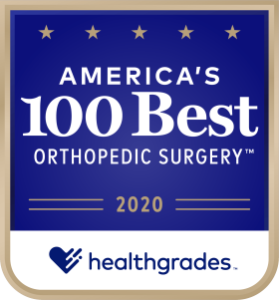 Have you found yourself re-adjusting throughout the day and wondered, what is the correct sitting position? The way we carry ourselves affects all interconnectedness in our bodies; from ligaments and bones to joints and muscles. Desk jobs are becoming more popular and in the age of COVID-19 working from home is the new norm. Our posture throughout the day is an important factor in our health. At Great Lakes Orthopaedics, we want to help you keep your spine in line. Let’s detail a few key ways to adjust yourself accordingly.
Have you found yourself re-adjusting throughout the day and wondered, what is the correct sitting position? The way we carry ourselves affects all interconnectedness in our bodies; from ligaments and bones to joints and muscles. Desk jobs are becoming more popular and in the age of COVID-19 working from home is the new norm. Our posture throughout the day is an important factor in our health. At Great Lakes Orthopaedics, we want to help you keep your spine in line. Let’s detail a few key ways to adjust yourself accordingly.
CORRECT SITTING POSITION TIPS:
- Make sure your weight is distributed evenly to both hips. It can be tempting when sitting for long periods of time to shift our weight primarily to one side or the other. Be mindful of this throughout the day.
- In addition to the above, it helps to keep your feet flat on the floor. This will ensure the alignment of your hips and spine are straight.
- Keep your elbows tucked in.
- Center your head above your pelvis to prevent from leaning forward.
- If possible, take a break from sitting to stand, stretch and get a few steps in at least once every half hour. This will also improve blood flow and decrease muscle fatigue associated with sitting for prolonged periods.
- If working a desk job, keep your screen at eye level and keyboard four to six inches from your wrists.
- Allow the curve in your spine to be natural and relaxed. No need to over-straighten or to slouch. Imagine pulling yourself upright from the top of the head by an invisible string and relax slightly.
- When sitting for long periods, try to sit on the edge of your chair and move it as close to your desk and work as possible. This will prevent you from leaning back and slouching into the chair.
- Be mindful of your back and shoulders. You can be sitting with a straight back and have slumped shoulders, or have your shoulders back and be slouching. Think of pushing your shoulders back as opening up your chest. A helpful tip is to do a backwards shoulder roll and notice how forward they may have been.
- Have a small towel, pillow or a lumbar roll with you to naturally enforce your correct sitting position through lumbar support.
 The majority of people find themselves sitting throughout the day. Be it commuting, for work, eating, watching tv or meditating. If you have a desk job, invest in an ergonomic chair for added comfort and support throughout the day. Sitting is something we do almost second-nature, we rarely contemplate our form or the implications of bad posture. Benefits of good posture include but are not limited to:
The majority of people find themselves sitting throughout the day. Be it commuting, for work, eating, watching tv or meditating. If you have a desk job, invest in an ergonomic chair for added comfort and support throughout the day. Sitting is something we do almost second-nature, we rarely contemplate our form or the implications of bad posture. Benefits of good posture include but are not limited to:
- Improving spinal fluid and spinal health
- Reducing the risk of injury due to muscle strain
- Reducing the wear on joints, muscles and ligaments
- Reduced neck pain
If you’re not in the position to invest in an ergonomic chair and find yourself sitting at a desk most of the day, don’t worry. There are a few tricks to try in the interim. First, grab a towel and roll it up. Place the towel between your lower back and the chair. A small pillow will also work, though be sure it’s not too soft as it may collapse and have you slouching. The same is true if a pillow is too large. It will force your spine outwards and leave you in a strained position. Find something that fits naturally and allows you to relax upright.
Although we encourage you to keep your feet flat on the ground and back straight as mentioned above, it’s important to note your correct sitting position doesn’t end there. The pain we may experience with sitting can vary from person to person due to muscle fatigue. We can be structuring our posture perfectly and still be in pain due to a poorly designed chair. Having a supportive chair or at least equipping yourself with a towel or pillow as mentioned above will ensure you are sitting correctly. For all your orthopedics needs, visit us at https://greatlakeso.com/
The Content is not intended to be a substitute for professional medical advice, diagnosis, or treatment. Always seek the advice of your physician or other qualified health provider with any questions you may have regarding a medical condition.



